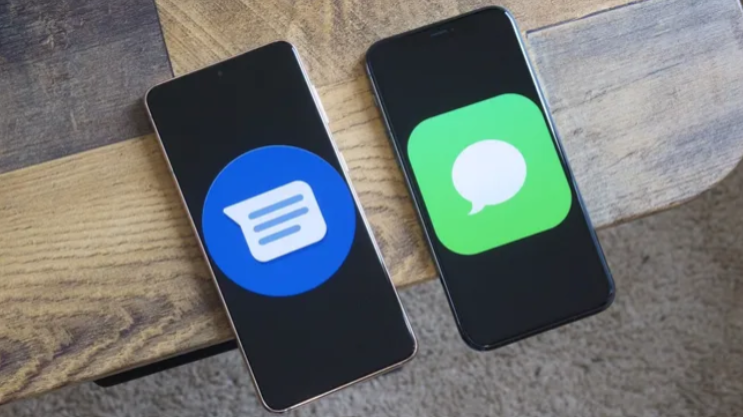In a surprising move, Apple announced plans to support the rich communications systems (RCS) protocol, signaling a potential end to the long-standing blue-bubble/green-bubble debate that has divided iPhone and Android users. The tech giant’s decision to integrate RCS aims to enhance messaging between the two platforms, bringing new features and improved interoperability.
Apple’s iMessage has long been a point of pride for iPhone users, with its distinctive blue bubbles setting them apart from the green bubbles associated with Android texts. Google has persistently advocated for the adoption of RCS, a communication protocol designed to replace traditional text messaging with more advanced and standardized chat features.
“We believe the RCS Universal Profile will offer a better interoperability experience when compared to SMS or MMS,” stated Apple, emphasizing its commitment to providing a seamless texting experience. The move aims to level the playing field for iPhone and Android users, introducing higher-quality photo and video sharing, read notifications, and other features that were previously exclusive to Apple devices.
While Apple’s support for RCS is a step towards more evenhanded texting experiences, the iMessage platform itself will remain exclusive to Apple hardware. This decision means that iPhone users can still enjoy the security and advanced features of iMessage, while Android users benefit from improved messaging capabilities.
The green-blue bubble divide has been a source of contention, with some teens feeling peer pressure to conform to iPhone usage due to the stigma associated with green bubbles. Apple’s shift may not entirely eliminate this divide, but it promises to make text exchanges between iPhone and Android users more productive and less divisive.
Google welcomed Apple’s decision, emphasizing the importance of modern and secure communication for all users, regardless of their choice of smartphone. The tech giant has actively campaigned for Apple to adopt RCS, with billboards in various cities featuring the #GetTheMessage campaign.
In 2022, Android dominated the global smartphone market, holding an 81.2% market share compared to Apple’s 18.8%. However, Apple’s move comes at a time when the company reported a decline in sales for the fourth consecutive quarter. Despite the overall dip, Apple’s iPhone business advanced 2.8% to $43.8 billion, matching analysts’ expectations.
The integration of RCS is a significant about-face for Apple, which has traditionally been protective of its ecosystem. The move reflects a recognition of the changing dynamics in the smartphone market and a willingness to embrace industry standards for the benefit of users on both sides of the iOS-Android divide.
(Source: WSJ | 9to5Mac)









